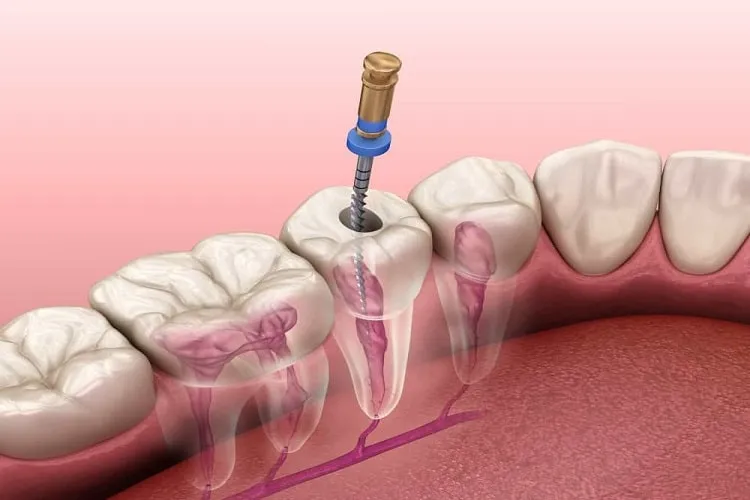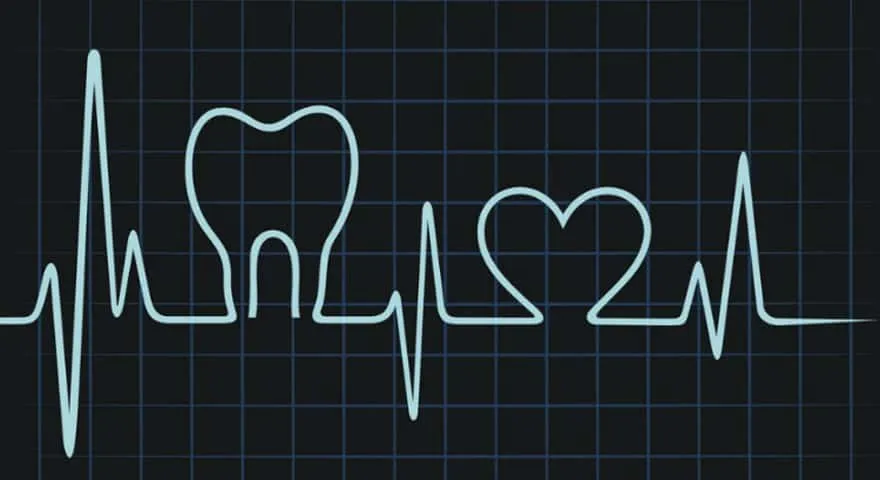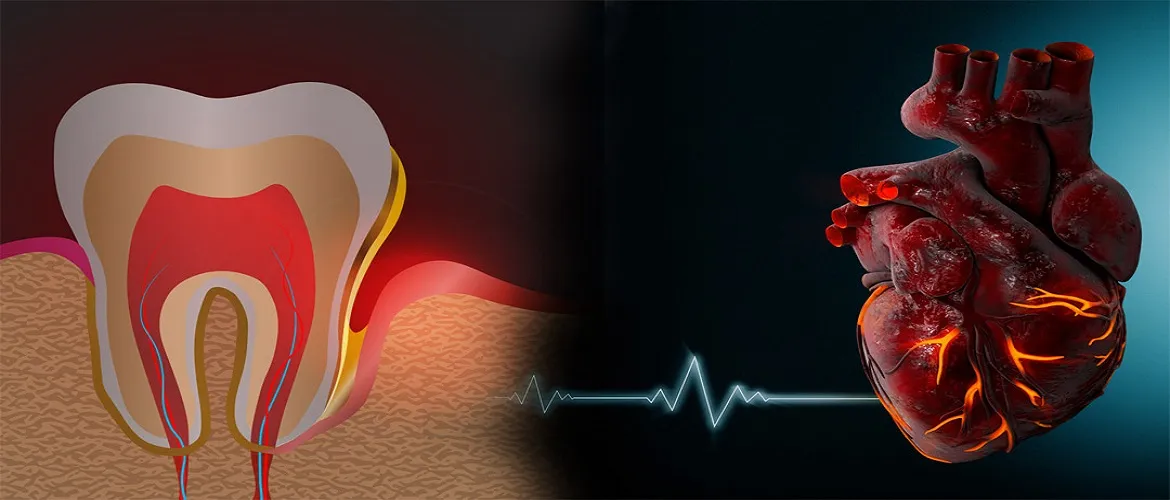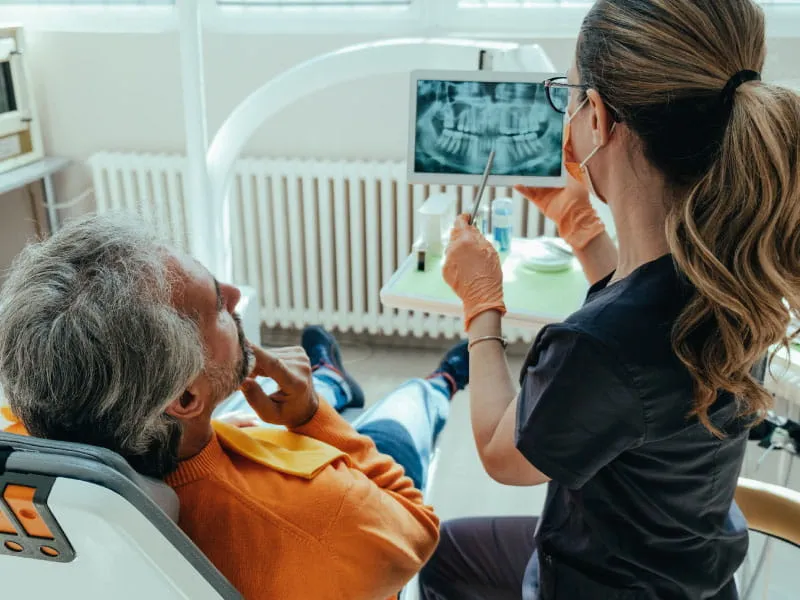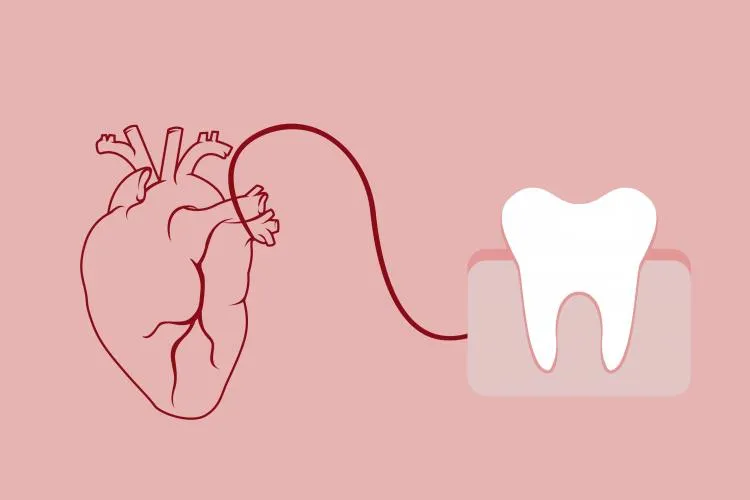Dental care for cardiac patients is very important. Dental problems in individuals with heart conditions have more serious effects on them. Therefore, it is essential to choose your dentist with extra care. Cardiac patients, due to heart weakness, diabetes, or medications used to control blood pressure or cardiac arrhythmias, are usually at higher risk of oral infections. Thus, oral hygiene is crucial for these patients. Additionally, some dental infections can lead to severe heart problems.
Dr. Mehdi Alibeigi is the best dentist for treating dental diseases in cardiac patients
Dr. Mehdi Alibeigi has extensive experience and expertise in this field, and his clinical and diagnostic abilities are confirmed in enhancing the dental health and safety of these patients.
Dr. Mehdi Alibeigi uses advanced equipment and modern medical techniques to assess cardiac patients with high sensitivity and accuracy. He takes into account the specific characteristics of each patient’s heart disease and develops a personalized treatment plan for each individual.
Another outstanding feature of Dr. Mehdi Alibeigi is his up-to-date knowledge of the latest scientific and research advancements in both dentistry and cardiology, as well as his commitment to providing high-quality, ethical healthcare to his patients.
If you are a cardiac patient in need of dental treatment, consulting Dr. Mehdi Alibeigi could be a suitable and safe choice for you. It is also recommended to consult with your cardiologist about their advice and guidelines before undergoing any dental procedures.
Additionally, in some cases, dental diseases can act as a cause for cardiac problems. For example, periapical infections (pyrrolis) may spread to the heart through dental surgeries or tooth decay, leading to symptoms such as fever, chest pain, and shortness of breath.
Therefore, for cardiac patients, regular dental visits and follow-up treatments are crucial. Ensuring that any oral infections are diagnosed and treated promptly is essential. Also, maintaining good oral hygiene at home is highly important to prevent potential problems.
It is important to note that before undergoing any dental care or oral surgery, always consult with your cardiologist to receive the necessary guidance and ensure that the treatment process is compatible with your heart condition.
What should a dentist pay attention to when treating a cardiac patient?
Consultation with Cardiologist: Before starting any dental care or oral surgery, the dentist should consult with the patient’s cardiologist to ensure the patient’s heart condition is stable and that there are no risks to heart health.
Antibiotics: If necessary, the dentist should prescribe antibiotics to the cardiac patient before performing oral surgery or dental treatment to prevent infections from spreading to the heart.
Blood Pressure Control: If the patient has high blood pressure, the dentist must ensure blood pressure control before, during, and after dental care to minimize potential risks.
Stress Reduction: Dental treatment can cause stress for some cardiac patients. The dentist should avoid creating excessive stress and take measures to minimize stress during treatment.
Use of Painkillers: If the patient requires pain relief, the dentist should use a non-steroidal painkiller, as it has less impact on the cardiovascular system compared to other pain medications.
Continuous Monitoring: During dental treatment, the dentist should continuously monitor for any signs of potential heart problems in the patient and inform the cardiologist if necessary.
Delay in Urgent Treatment: If the cardiac patient requires urgent dental treatment, the dentist should avoid delaying it and determine the best time for treatment while ensuring the heart condition is under control.
Tooth Extraction and Root Canal Treatment in Cardiac Patients
Tooth extraction (extraction) and root canal treatment in cardiac patients require special care and attention. These procedures should be evaluated and treated by both a dentist and a cardiologist together.
In some cases, tooth extraction may be necessary, for example, if a tooth is severely damaged and cannot be restored. Also, in the case of a severe dental infection that could compromise the cardiac patient’s immune system, tooth extraction may be required, along with the use of antibiotics before and after the procedure.
When it comes to root canal treatment, certain considerations must be taken into account. If the patient’s tooth is affected due to deep decay or severe trauma to the tooth pulp, a root canal may be necessary. However, it’s important to note that some heart conditions may influence the procedure. In some cases, root canal treatment may cause increased stress and anxiety, so these concerns should be addressed in coordination with the patient’s cardiologist.
Contraindications for Dental Services for Cardiac Patients
Conditions that may prevent dental services for cardiac patients are primarily aimed at preserving the patient’s health and safety. These conditions include:
Acute Cardiac Problems: If the patient has acute cardiac issues such as myocardial infarction (heart attack) or severe heart failure, dental services may cause additional complications. In these cases, the priority is to improve the patient’s heart condition, and coordination with the cardiologist is essential.
Use of Specific Medications: Some medications taken by cardiac patients may interact with the drugs or antibiotics used in dental procedures, leading to serious complications. Therefore, the dentist and cardiologist must collaborate to review the patient’s medications.
Severe Dental Infection: Cardiac patients with severe dental infections may face greater risks, as these infections can harm the immune system and contribute to heart problems. In these cases, the dental infection must be controlled first, and then dental services can be provided.
Poor General Health: If the patient is in poor general health, such as having kidney weakness, asthma, or respiratory issues, dental services should be postponed until the patient’s condition improves.
Ultimately, any decision regarding the provision of dental services to cardiac patients requires collaboration and communication between the dentist and cardiologist to make the best decisions for the patient’s health.
Why Dental Care for Cardiac Patients Can Be Risky?
Dental care for cardiac patients can be risky due to the connection between teeth and the cardiovascular system of the body. These connections can sometimes lead to serious complications for the patient. The risks are primarily due to the following factors:
Dental Infections: Cardiac patients are at an increased risk of dental infections. These infections can cause bacteria to spread into the bloodstream and, in severe cases, lead to sepsis (blood infection), which weakens the immune system and damages the cardiovascular system.
Drug Interactions: Some medications used to treat heart diseases may interact with drugs used in dental procedures, leading to serious complications.
Antibiotic Prescription: For certain dental treatments, antibiotics may be required before and after the procedure to control infections. Improper prescribing and usage of antibiotics can result in serious side effects.
Stress from Dental Procedures: Some cardiac patients may experience worsened heart conditions due to stress caused by dental procedures and fear of treatment.
Therefore, due to these connections and potential risks, cardiac patients require special care and attention. They should coordinate with their cardiologist before any dental intervention to ensure the necessary precautions are taken to preserve their health.
Different Types of Heart Disease
Some heart diseases that individuals suffering from them may need dental care and should consult a specialist include:
- Coronary Artery Disease (Heart Artery Disease): This condition occurs due to the buildup of fats and other deposits in the walls of the coronary arteries, reducing blood flow to the heart muscle. Conditions such as heart attack (myocardial infarction), angina (chest pain), and heart arrhythmias may be part of this group of diseases.
- Myocardial Diseases (Heart Muscle Diseases): These diseases can occur due to inflammation, infections, genetics, or other unknown causes affecting the heart muscle. For example, myocarditis (inflammation of the heart muscle) and cardiomyopathies (heart muscle dysfunction) are part of this category.
- Valvular Heart Diseases: These diseases occur due to defects or damage to the heart valves, which can lead to valvular insufficiency or irregular heartbeats.
- Congenital Heart Diseases: These conditions arise from structural defects in the heart that occur during fetal development and can affect the heart’s structure and function from birth.
- Cardiac Embolism Diseases: These diseases occur due to the presence of blood clots or foreign bodies in the heart’s vascular system, potentially blocking blood flow and causing dangerous complications.
This list only provides a few examples of heart diseases, and for accurate diagnosis and treatment, it is essential to consult a cardiologist. Additionally, preventive measures such as a healthy lifestyle, proper nutrition, and regular health check-ups can help prevent heart diseases.
How should heart patients take care of their oral and dental health?
Periodic Check-ups
One of the most important methods to prevent oral health problems in heart patients is regular dental check-ups. Heart patients should visit their dentist every six months for an examination of their teeth. This check-up includes examining the gums, periodontal issues, tooth fractures, and any signs of oral infections. If the dentist finds any problems, they can inform the patient and assist in treating them.
Oral Hygiene
Oral hygiene is also very important for heart patients. Heart patients should brush their teeth twice a day with a toothbrush and toothpaste. Additionally, using dental floss is an effective method of oral hygiene. It is essential to check for tooth fractures and any other signs or symptoms of oral infections. If the patient has dental issues, it is best to address the necessary treatments and repairs promptly.
Visiting the Dentist Before Heart Surgery
If a patient is scheduled for heart surgery, it is advisable to visit their dentist beforehand and address any oral health issues. This can help minimize complications during the heart surgery.
Using Toothbrush, Toothpaste, and Antibacterial Mouthwash
Using a toothbrush, toothpaste, and antibacterial mouthwash can help prevent oral infections in heart patients. It is recommended to use soft toothbrushes and toothpaste with fluoride. Additionally, antibacterial mouthwashes can help control bacteria in the mouth.
Maintaining a Healthy Diet
A healthy diet can improve the oral health of heart patients. Avoid sugary foods, carbonated beverages, and foods rich in sugar. Also, consuming fresh fruits, vegetables, and high-fiber foods can contribute to better oral health.
Preventing Tooth Fractures
Tooth fractures can cause problems for heart patients when opening doors, eating, or speaking. It is advisable not to use products that may cause tooth fractures and to use a dental guard when cleaning the mouth.
Semi-Annual Dental Visits
Since dental care for heart patients is very important, they should visit their dentist twice a year to check their teeth and gums. This can help prevent oral infections and improve overall oral health.
Avoiding Drugs and Smoking
Drug use and smoking can contribute to the development of oral infections in heart patients. These substances can also exacerbate heart problems, so it is best to avoid their use.
Use of Gloves and Masks
Wearing gloves and masks during dental procedures helps heart patients avoid oral infections. Additionally, if a patient has oral infections, using gloves and masks can help prevent the spread of infections to others.
Pain and Discomfort for Heart Patients
To prevent tooth fractures, it is advised to avoid eating hard foods and using strong teeth to cut or crush food. Also, make sure to replace your toothbrush regularly and use soft-bristled brushes.
Periodic Oral Health Checkups
To prevent oral infections, it is recommended to have periodic checkups for your oral health. If any problems are observed, visit your dentist. Periodic checkups can improve your dental condition and control oral bacteria.
Post-Surgery Care Instructions
After heart surgery, it is crucial to follow the post-surgery instructions carefully. If you have been advised to consult your dentist, make sure to follow up. Following these instructions can help reduce the risk of infections and contribute to a faster recovery.
Ultimately, it is advisable to collaborate with both your dentist and your physician in maintaining oral health and preventing oral infections. This can improve your overall health and reduce the risk of heart disease.
Conclusion on Dental Clinics for Heart Patients
In conclusion, maintaining oral health is crucial for heart patients, as dental care plays a significant role in overall health. Oral infections can increase the risk of heart disease and interfere with other medical treatments. Therefore, it is essential for heart patients to seek regular dental care, follow oral hygiene practices, and work closely with both their cardiologist and dentist to ensure their oral health is well-managed. Proper dental care can contribute to better overall health and help reduce the risk of cardiovascular complications.


